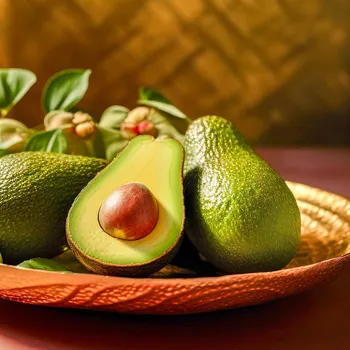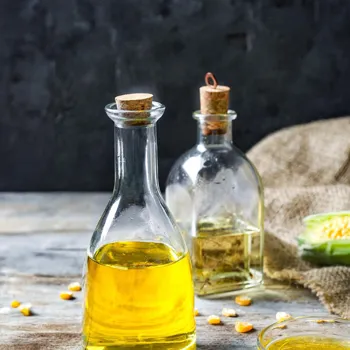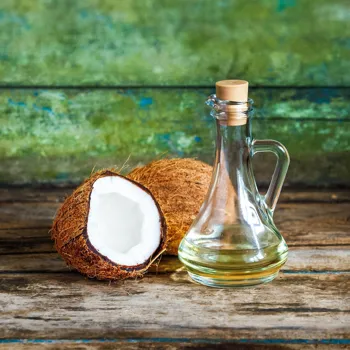Unveiling the Truth: 10 Myths About Fats Debunked! Dive into the world of fats to discover what's truly healthy for you
Namaste readers! Are you also confused about fats? One minute they are the enemy,
the next they are the key to good health! It's enough to make your head spin faster than a dholak at a wedding! But don't worry, we are here to set the record straight.
Let's bust these 10 common myths that might be stopping you from enjoying a balanced and healthy diet. After all, good health is our birthright.
Not all fats are bad - embrace good fats for health!
This is the biggest misconception of them all! Not all fats are created equal. There are good fats and bad fats. Think of it like this, some friends are good for your soul, and others are not so good. Same with fats!
Unsaturated fats, found in things like nuts, seeds, avocados, and olive oil are actually beneficial for your heart and overall health. They can help lower bad cholesterol levels and provide essential nutrients. Avoid trans fats, usually found in processed foods, which are truly harmful.
So, don't throw the baby out with the bathwater, embrace the good fats!
Eating excess calories leads to weight gain, not specific nutrients
This is a simple one, but often misunderstood. Eating protein or carbohydrates in excess can also lead to weight gain, it all depends on the calories. Eating fat does not directly mean you will "become fat". The key is moderation and balance.
Consuming excessive calories, regardless of their source (fat, carbs, or protein), is what leads to weight gain. In fact, healthy fats can help you feel fuller for longer, potentially reducing your overall calorie intake. So, include them smartly in your daily diet.
Saturated fat context matters; not all bad, in moderation
Saturated fat has been demonized for years but some studies are now showing it might not be as bad as we once thought. The key is context. Saturated fat from processed foods is most likely to be harmful compared to saturated fat in a fruit.

Small amounts of healthy saturated fats, such as those found in coconut oil, might not be as detrimental as previously believed. Avoid overeating processed and oily foods.
Be cautious of "low-fat" products; they may contain unhealthy additives
Think twice before reaching for that "low-fat" biscuit! Very often, to compensate for the lack of flavour when the fat is removed, manufacturers add sugar, salt, or artificial sweeteners. You might end up consuming more unhealthy ingredients than you would if you chose the regular version.
Always read the label carefully and check the ingredient list before concluding that a "low-fat" product is the the best option.
Choosing healthy fats is key for managing cholesterol
If you are dealing with high cholesterol, the type of fat you consume matters more than the total amount. Focusing on including more unsaturated fats and reducing your intake of trans fats and excessive saturated fats is usually a more appropriate approach.

Instead of avoiding all fats, work with your doctor or a registered dietitian to create a personalized eating plan that meets your individual needs.
Choose oils with high smoke points for high-heat cooking
Different cooking oils have different smoke points, which is the temperature at which they start to break down and release harmful compounds. Using an oil with a low smoke point at high temperatures can not only ruin the taste of your food but also be detrimental to your health.

Choose oils with high smoke points, like avocado oil or sunflower oil, for high-heat cooking, and oils with lower smoke points, like olive oil, for low-heat cooking or salad dressings. Think of it like using the right utensil for the right job.
Vegetarian diet not always healthy; focus on quality fats
The assumption that "vegetarian means healthy" is a total myth. As a vegetarian if you are only eating heavily processed foods that are oily then you are not as healthy as you imagine. It's important for everyone to focus on the overall quality of their diet.
So, whether you are vegetarian only or not, pay attention to the sources of fat you are consuming and make sure they are primarily from whole, unprocessed foods like nuts, seeds, avocados, and healthful oils.
Fats digest slower than carbs, consult doctor if discomfort
While it's true that fats take slightly longer to digest compared to carbohydrates, you likely have no reason to worry. The body has an intricate system to digest fatty acids. However, if someone has a gastro related illness then there might be digestion complications.
So, if you feel uncomfortable after eating fats consult a doctor immediately.
Coconut oil: potential benefits but moderation key in diet
Coconut oil has been touted as a miracle food, but the research isn't quite there yet. While it does have some potential benefits, it's important to remember that it's still a saturated fat. Therefore, moderation is key.

Don't go overboard on the coconut oil just because you think it's the next big thing. Use it as part of a balanced diet.
Cutting fat for weight loss not sustainable; body needs fat for health
Cutting out fat may lead to short term weight loss, but not sustainably. Remember our bodies need fat! It is not just what we eat but lifestyle and habits. So, be patient with progress to lose weight and keep the fat burning.
Myths about fats debunked, focus on healthy choices for a balanced diet
So there you have it! Ten myths about fats debunked! Remember, fats are an essential part of a healthy diet. Focus on choosing healthy fats, eating them in moderation, and balancing them with other essential nutrients. Good luck on your journey to a healthier and happier you!
AI Generated Content. Glance/InMobi shall have no liability for the content











